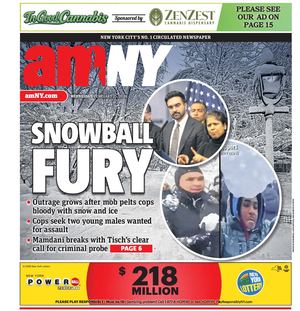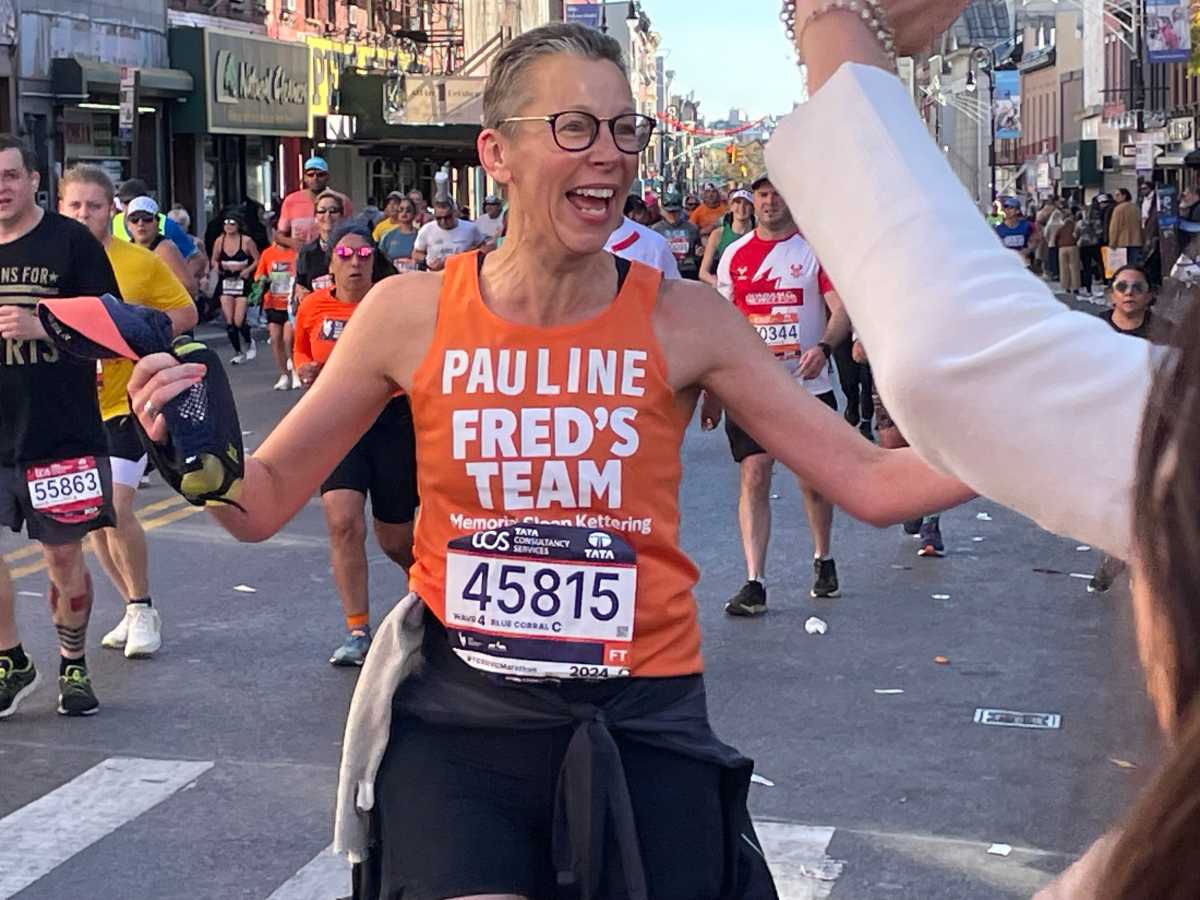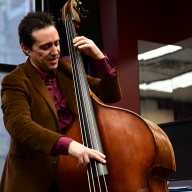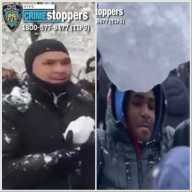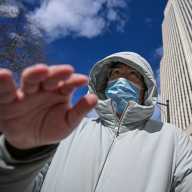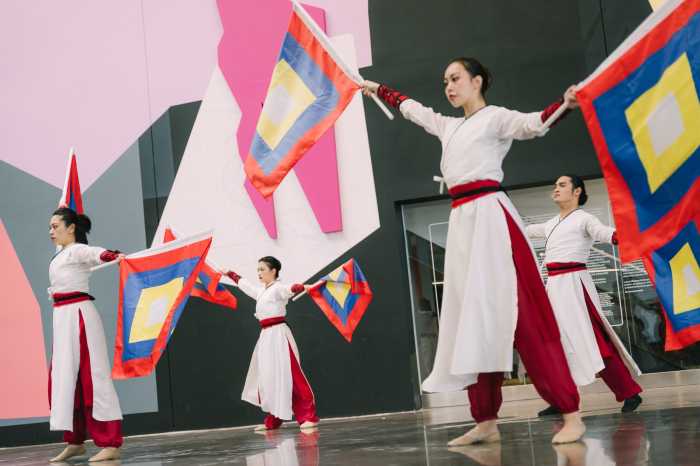The TCS New York Marathon, produced by New York Road Runners is an annual race that people from around the world participate in. It is a trying 26.3 miles to the finish line, and even the strongest runners struggle to the end. What Pauline Larkin didn’t know was that she would be running with an added challenge, one that would change her life.
“I first ran the marathon in 2018 with a friend of mine, and I ran it again in 2023 with my brother,” Larkin said. “In 2024, I was diagnosed with ovarian cancer, and decided after I had this major operation and gone through chemo that I was gonna show up and run. In 2025, my cancer came back.”
Larkin’s diagnosis has been an extensive challenge both physically and mentally. Chemotherapy affects everyone differently, and for Larkin, chemo affects her feet. The first time Larkin got Chemotherapy, she lost her hair. Being bald, she said, was much easier than having overly sensitive hands and feet.
Training for the New York Marathon has been especially difficult for Larkin, as her training regime is constantly having to change.

“It’s interrupted by these weird Chemo bullets that happened. It’s interrupted by going for chemo, it’s interrupted by being tired from chemo.”
Even though Larkin is facing a tremendous amount of trials, she still believes that continuing to run is essential, “It’s important because it keeps me sane. I think that running is one of the best mental health tools ever. It reduces my stress.” She said,
Larkin runs for Fred’s Team, the official running program of the Memorial Sloan Kettering Cancer Center. All money raised goes directly towards the labs which develop groundbreaking discoveries, making change around the world. This is also where Larkin has received all of her treatments. Running through treatment gives Larkin an enormous purpose, she explains. She is running to fundraise, she is running with people who have been affected by cancer, and she is running to raise awareness of cancer.
“I think my personal story about being a runner who is running while they’re receiving chemotherapy treatment is that I want to run to show that there is a different experience for everyone,” Larkin said.
Even though Larkin is going through such a challenging hurdle in her life, she still believes that getting to run is a privilege. “It’s been such a privilege to get to run with Fred’s team and to have this other side, that you can be sick and vibrant, you can be tired and energized,” she said, “you can have stillness and apathy, and you can show up and you can move your body.”

Larkin has not always been a runner, and shared that her journey started with lots of laughs. She decided that she wanted a change in pace, and joined her friend for a run at the park, “I was wearing a velour leisure suit. It was so warm and hot and heavy. I had no idea what I was doing and she’s like, ‘we’re gonna run around the track’.”
After this moment, Larkin knew she wanted to take agency over her body, and running was her solution. So, she laced up her new shoes and tried running with some different, less sparkly gear. Though her journey started slow, she started to enjoy it more and more every mile.
The beauty in running, as explained by Larkin, is the connections you make along the way. Running long distances means you get to interact with people. “You run and you talk,” she said. “You’re not running fast, so you get to really connect with people.”
Larkin has not lived in the city her whole life; she is originally from Scotland. “I think that running the New York City Marathon would make anyone fall in love with New York City,” Larkin said.
Being a runner in the marathon is a unique moment to feel like you’re on top of the world, and Larkin feels that the support from New Yorkers is one of the most magical experiences. “New York has a magic energy about it that I absolutely adore,” she said.
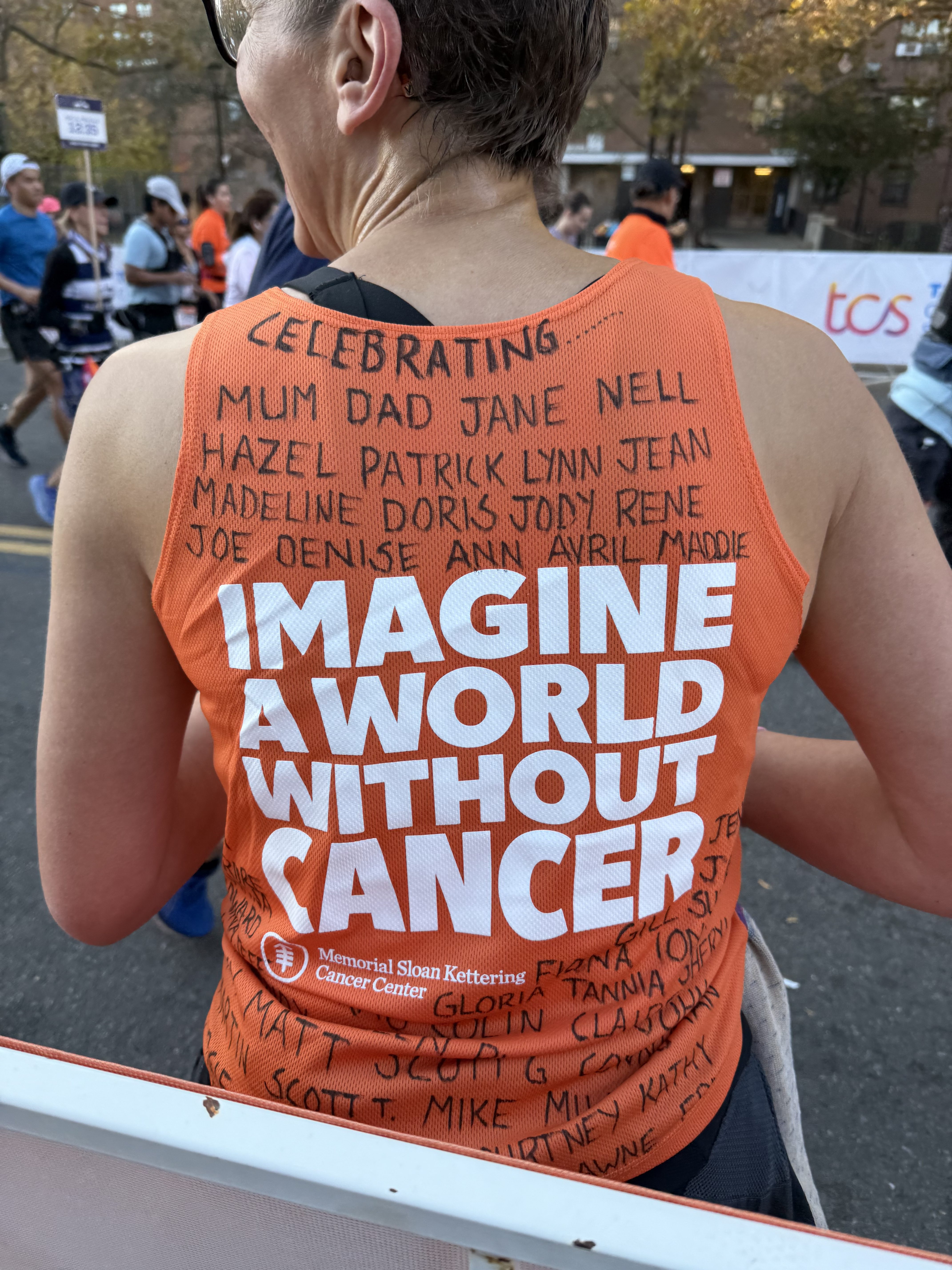
Larkin’s favorite memory from running the New York Marathon in the past was when two of her surgeons joined her in the final mile.
“When I saw my surgeon, we just started crying. We never really expected that I was going to be able to run. That moment of connecting with the two of them was just amazing, amazing.”
If Larkin could share one message with those who are affected by cancer, it would be to never be afraid to ask for help, “Share your story, seek other people who have similar experiences, to allow yourself to be vulnerable and strong all at the same moment,” she said, “recognize that life has an enormous purpose.”
For Larkin, a strong race isn’t a first-place medal, but a positive attitude, “A perfect day for me is gonna be that I finish and that I finish smiling,” she said, “A perfect day is going to be me remembering why I run. That I run because I can, because my body lets me do that.”
“I think every mile when I feel defeated, it is going to be a success because you’re alive and because you can do that,” she said. “And that is, that is a privilege.”
